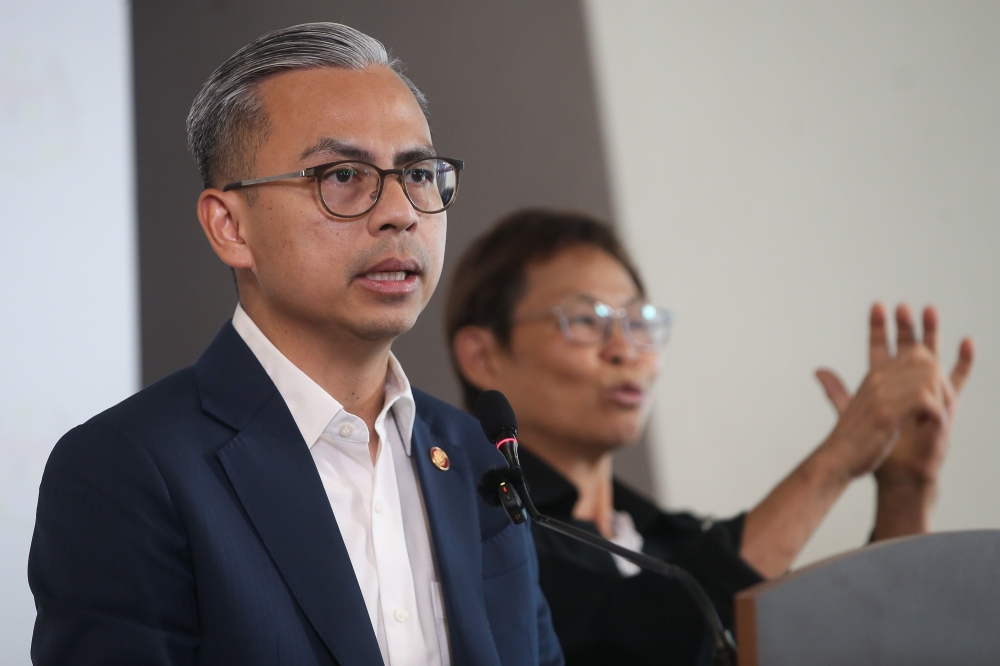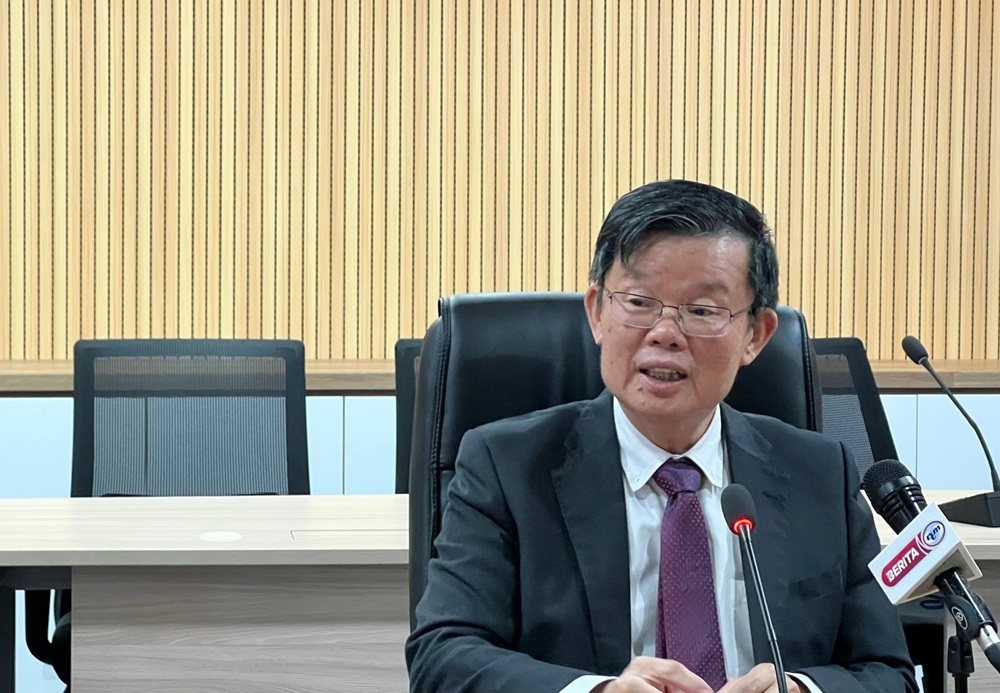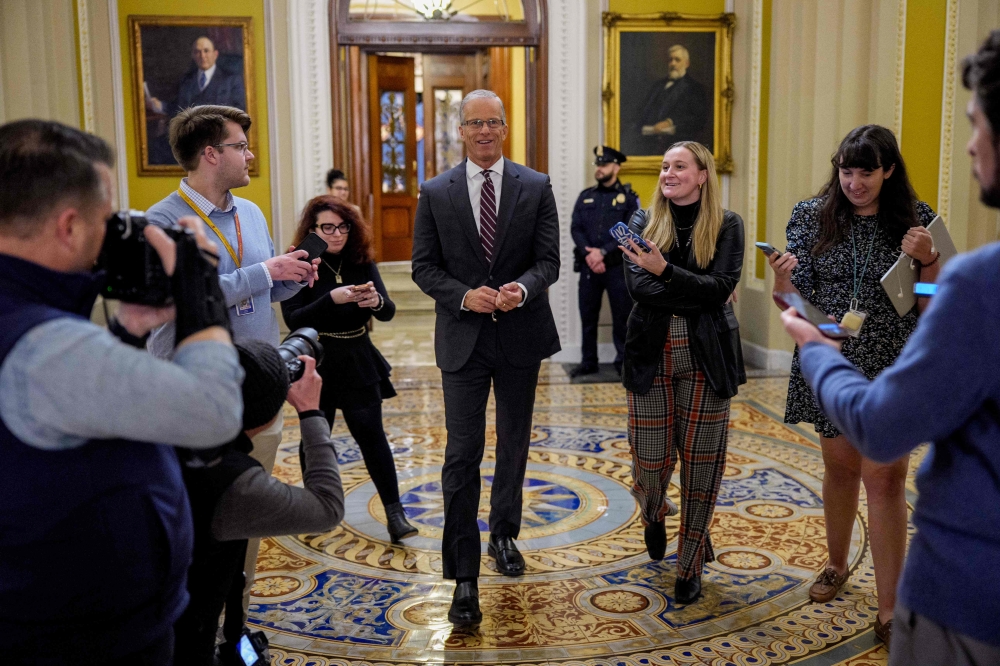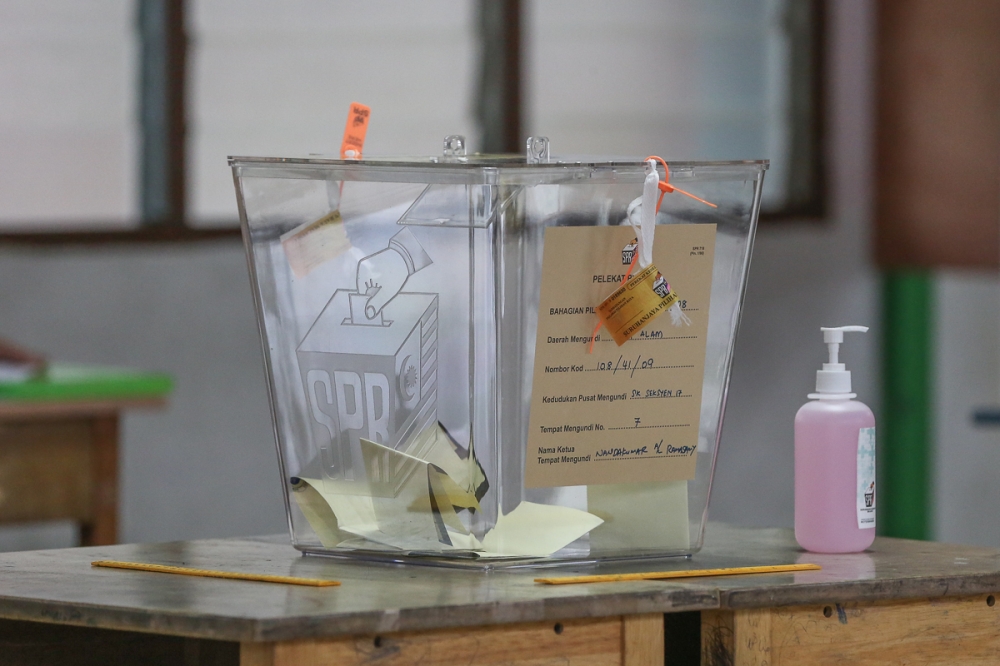MAY 23 — A technology-loving generation will probably usher Malaysia into an era of great prosperity. Its promise is undeniable.
So — twist and — shout TVET from tall buildings, or even write pop songs with cliché lyrics like “Technical and Vocational Education and Training turns me on good while fixing my tele — digital, not Analog!”
However, if the enthusiasm is not matched by “strategic implementation, continuous adaptation to industry needs, and overcoming societal perceptions,” then the version which transpires might flatter to deceive.
Above in quotation marks is the qualifier OpenAI 4.0 put in its summary to my question, “Will TVET save the Malaysian economy?”
Ah, not straightforward then.
All aboard in the yellow submarine
The current “TVET for all” call to action, while seemingly egalitarian, should come with a caution label.
Deputy Prime Minister Zahid Hamidi, also chair of the national TVET committee, said yesterday that “no academic certificate, either SPM or else” is deemed necessary to sign up.
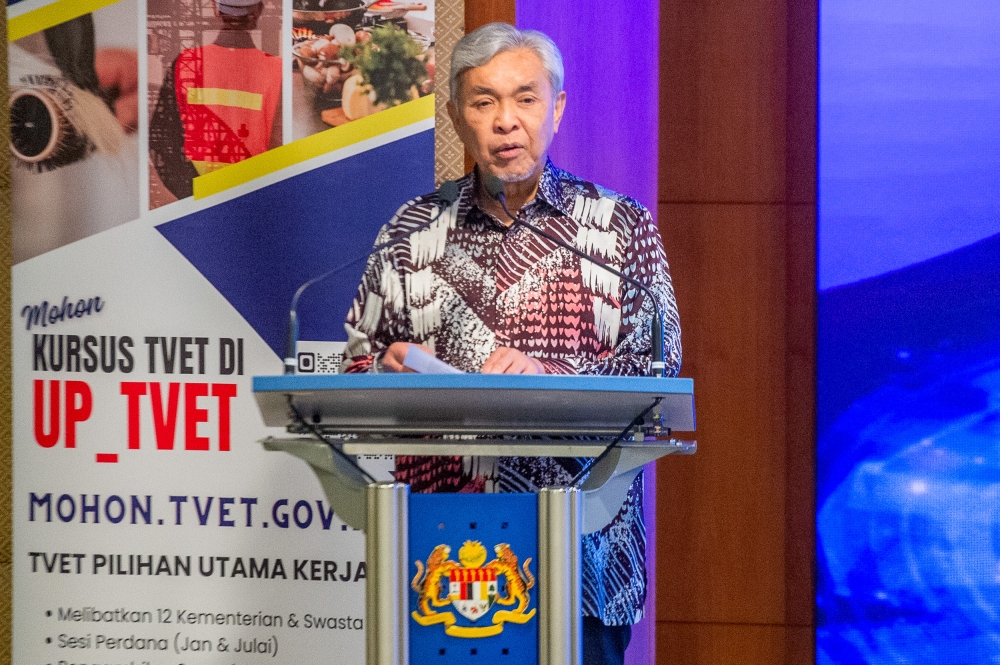
Consistent with Higher Education Minister Zambry Kadir’s guarantee earlier this year that community college or polytechnic applicants can forgo the SPM prerequisite. SPM is our standard school leaving certificate.
Let’s retrace these steps, or lack of steps.
A degree is lovely, yet the worthiness-decree relationship must be in the right order. The cert reflects graduate competency and capabilities, and not that the graduate is competent and capable because a cert is issued to him. The paper confirms a reality, not declares a truth regardless of evidence.
The worst kept secret in Malaysia is that both government and private institutions for different reasons, one for politics and the other for profit, rarely kick out students even if they are unworthy.
Those who slog get high scores, the only distinction among peers.
Their real aptitude test is before college, when they take their SPM examination. It is externally and anonymously assessed, and all students in the country get a standard exam.
Even with the steady slide of national public education, SPM is the only time all kids of an age compete against each other.
Some of the papers' low passing mark is an abomination, but it is our only objective ranking of scholastic achievement.
Before, those who fail cannot continue to the next level.
This minimum to proceed is worth defending.
For those who fail or struggle to get the required grade can repeat the examination.
It’s important to have the basics, like language proficiency and STEM (Science, Technology, Engineering and Mathematics) before other things.
The argument that a wireman needs zero prior education to place high voltage wires inside walls of buildings, and all he needs is two years of TVET without previous knowledge of basics is dangerous for industry, consumers and to a great degree for the said wireman.
Voltage, resistance, surface area and tool’s metal composition for instance require a quotient of basics to navigate around. A deeper comprehension allows for less short termism in the work result.
By ploughing on with an army of candidates without education prerequisites risks the overall quality of the final output.
Floaters further adrift
It is fair to assume those who cannot reach SPM minimums have already years before withdrawn themselves from active learning in secondary school.
As even passive students sitting behind in the worst classes can pick up enough to pass SPM, it’s that easy to achieve a minimum pass.
Unsurprisingly, the ratio of detached students rose throughout the pandemic.
Zahid wants to up the number of TVET centres — universities, polytechnics, community colleges and skills centres — from the thousand three hundred today to potentially thirty thousand campuses.
Sounds incongruous, for polytechnics confide about lower enrolments by the year and the politicians want to spike up the numbers somehow. Good luck, the young increasingly forswear higher education, let alone TVET programmes.
It brings to mind what Professor Emeritus George K. Chacko said during his Cyberjaya sojourn. Tertiary education is meant for the willing and ready to suck the marrow out of academic life, and not as much for the gifted.
It gels well with Facebook’s ethos that “engineers do their best work when they're excited about something, and as a result, we have a true culture of continuous learning.”
Couple that with other sobering facts. The PTPTN's (government loan system) total accumulated debt last year was RM67 billion. Mahathir during his second PM tenure warned this debt burden far exceeds the 1MDB bother.
Then why persist to grow the student loan debt further?
Our senior policy makers went to university in the 1990s and assume the reception they received and their rapid ascent in the private and public sector would be replicated for those after them. It was not the case.
The graduate employment market in the noughties (2000-2009) was rougher, in the teens (2010-19) harder and now the twenties (2020-2024) is getting impossible for many.
This is a recipe for disaster.
The unprepared, unwilling or disinterested — take your pick — without basics are urged by the state to pursue TVET with government loans. They are likely not able to immerse themselves in the learning, even if the lure pay makes them hold out for jobs in new technology (AI and high-skill manufacturing) while shouldering the student loan. A myriad of manholes await to spiral them down the social ladder.
At the end of the enthusiasm, if a large number of those shoved into TVET programmes do not convert them into new economy careers, they risk being undertrained, overburdened by debt, and drifting.
To pick those already drifting for years and route them to a more dire passage is cruel from whichever way seen.
Market corrections
While TVET is the rage, not all TVET graduates are the same.
Market forces determine the value of employees, or indeed future entrepreneurs.
The government argues our graduates deserve progressive rises in salaries.
Anecdotal stories abound about graduates either underemployed — the business technology alumni manning the 7Eleven till — or under-appreciated underscored by low wage increase.
There is the flip side to the story, to this version.
Maybe the market sees no value in the typical business technology graduate from our local universities or feels the graduate lacks the aptitude to learn, adept and contribute despite years at the job, thus the stagnant salary.
The government can talk up any programme but its obligation may end with the completion of studies and the graduate to carry on with the market determining value.
My local mechanic gives RM5,000 to his Myanmar employee a month, since he learnt on the job, shows up every work day, stays back whenever asked, liaises brilliantly with clients in a language he picked up belatedly and keeps upping his understanding of vehicles serviced by them.
The mechanic, rather owner, gets more time to do yoga and not fear he’s losing business.
Talking about how the market treats our locals, TVET trained or not, reveals other attitudinal issues and uncomfortable conversations no party in the country can facilitate.
Walk silently with a big stick
The government must avoid piecemeal efforts and overenthusiasm overriding common sense.
If the current TVET drive is not met by success it may cripple the overall efforts, and disjoint further TVET batches.
The crux of new technology, as when speaking about TVET in today’s context, the conversation is more about AI and augmented reality, rather than water pipe attendants or telco substation technicians.
The education must prepare them while they prepare themselves for perpetual learning, an attitude to the future, or possess the attitude of the future.
The government must own the process of identifying candidates, filtering them, not allow those without a STEM basic, adjust syllabus frequently, and process them adroitly to employment.
In short, perhaps the government, its policy makers may need to exhibit the same level of adeptness to the situation and proactivity to the longer future, rather than rack up numbers without a thought on quality. Build a reputation, not campuses in a rush.
* This is the personal opinion of the columnist.



